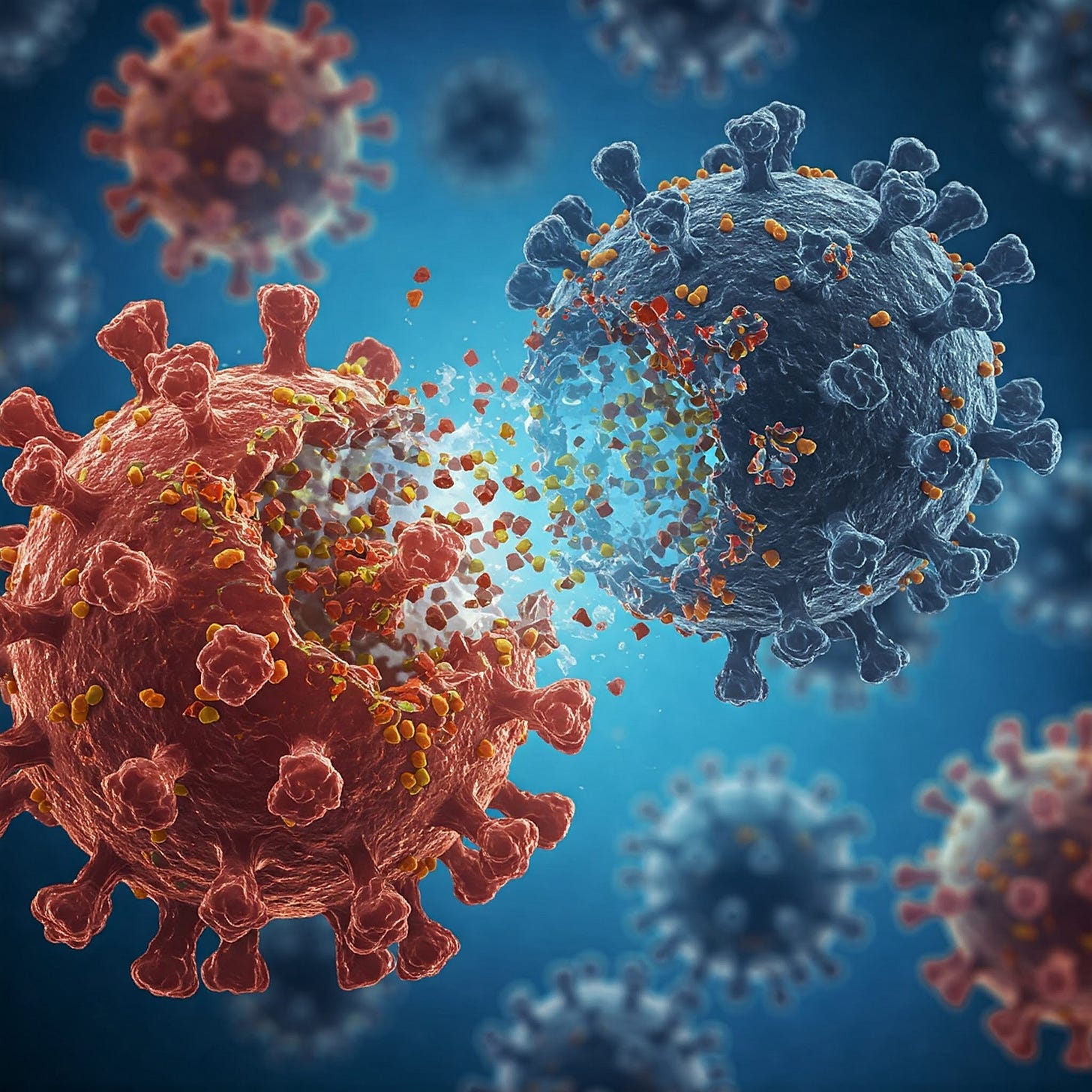This alternative to chemo is successfully treating cancer
is it for real?
Good morning!
You made it to the midweek checkpoint. Whether you're sipping chai or coffee, we’ve got something heartening to brighten your Wednesday.
Today, we bring you news that feels like a miracle, but is rooted in science.
📌 The cancer cure that skips chemo
New research from Memorial Sloan Kettering Cancer Center (MSK), aka the Avengers of cancer science has revealed that for certain genetic forms of cancer, patients may no longer need to suffer the exhausting trio of chemotherapy, radiation, and surgery.
The study, published in The New England Journal of Medicine, reports that nearly 80% of patients with multiple cancer types were successfully treated using only immunotherapy.
📌 So what is immunotherapy?
Unlike chemo, which kills both cancerous and healthy cells, immunotherapy trains your body to do its own fighting.
In this case, the researchers used checkpoint inhibitors - a drug that blocks certain proteins that prevent the immune system from attacking the cancer.
Think of it as lifting the “invisibility cloak” cancer cells wear.
This method targets tumors with a genetic flaw called mismatch repair-deficiency (MMRd) - a mutation that makes these tumors more vulnerable to immune attacks.
📌 Some real-life success stories
Take Maureen Sideris, diagnosed with a particularly aggressive gastroesophageal cancer in 2022. She and her husband were preparing for a difficult road of surgeries, chemo, and life-altering side effects.
But after receiving just immunotherapy, her cancer was gone.
“I had no evidence of cancer and didn’t have to undergo surgery, chemo, or radiation,” she shared. “I felt like I won the lottery!”
📌But, what did the trials reveal?
🔬 Phase 1 Trial (2022):
18 patients, all with stage 1-3 rectal cancer and the MMRd mutation.
Result? 100% were cancer-free after 6 months of immunotherapy infusions.
🔬 Expanded Trial (2024):
103 patients (49 rectal, 54 other cancers, including colon and stomach).
Result:
49/49 rectal cancer patients — complete remission.
35/54 with other cancers — cancer-free after therapy.
Remaining 20%? Tumors shrank, in some cases, enough to reduce cancer staging.
📌 But, is this really groundbreaking?
Dr. Andrea Cercek and Dr. Luis Diaz, who led the research, noted the limitations of traditional cancer treatments, including infertility, bowel dysfunction, nerve damage, and more.
“This could eliminate the need for harsh treatments that leave long-term scars on a patient's life,” Cercek said.
And for many patients, quality of life is just as important as survival.
📌 The thing is…
Immunotherapy isn't actually "new" — the first major cancer immunotherapy drug (Yervoy) was FDA-approved in 2011.
What’s new is how precisely it’s being applied, and to what extent it works in genetically tailored cases.
Globally, around 15% of colorectal cancers have the MMRd mutation meaning this breakthrough isn’t just niche, it could help hundreds of thousands.
📌 So what’s next?
The National Comprehensive Cancer Network has added this immunotherapy-only option to their treatment guidelines.
Trials are ongoing for other cancers with the MMRd mutation.
And researchers hope to expand access globally, especially to low-income countries where surgical infrastructure is lacking.
That’s it for today. If you found this edition interesting and entertaining, please drop a like and follow us for more!
See ya👋



